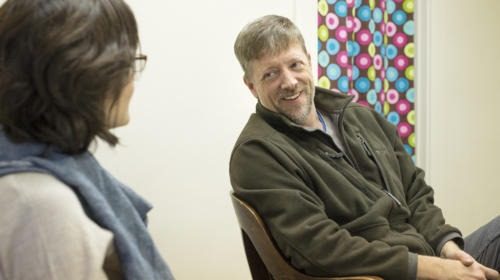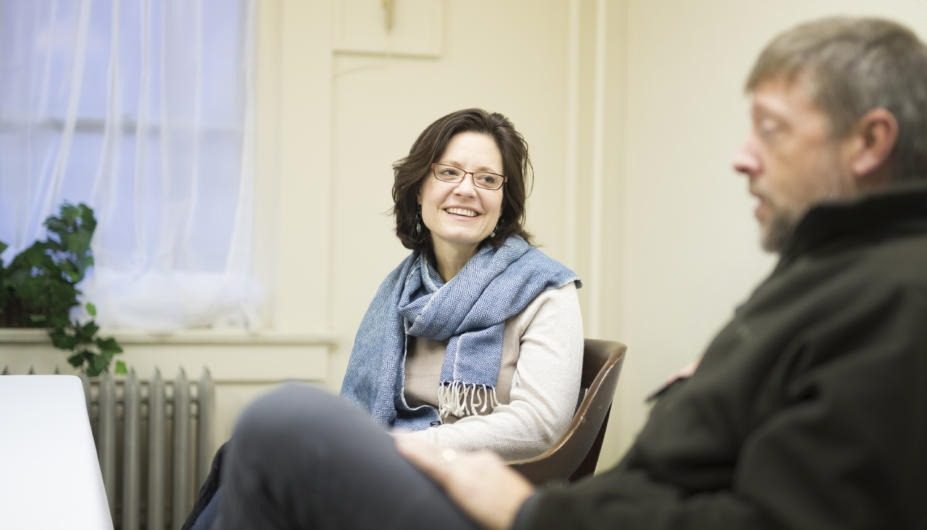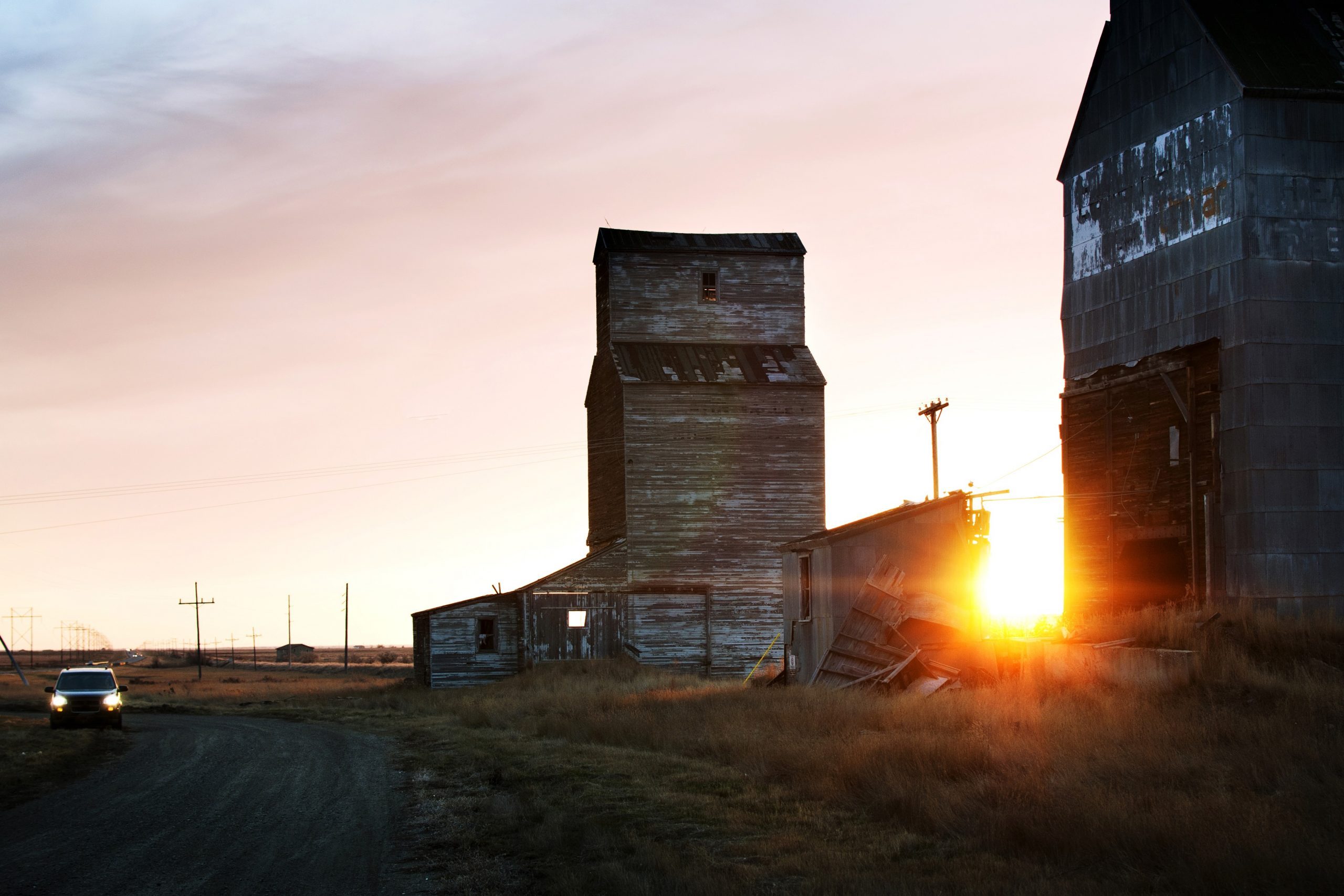This is the ninth and final part in the “Is Havre Dying or Evolving?” series. The Herald spoke to business owners and economic developers and local leaders and citizens, gears and levers that help make Havre and the Hi-Line turn day in and day out. The interviews, which are the basis for the series, were about business and life as it relates to the vibrancy of Havre and the surrounding area. Read the introduction, Part 1, Part 2, Part 3, Part 4, Part 5, Part 6, Part 7, and Part 8.
Aaron and Jayne Morrow wanted to come back to Montana the moment they left. But they were held back from doing so for 20 years, mainly by their jobs. Three years ago that changed. The Morrows moved back to Montana. They moved on the Hi-Line.
And they brought their jobs with them.
“I chose Montana when I got out of high school and I love the state,” Aaron said. “Having the opportunity to come back here was a no-brainer.”
Aaron and Jayne met while cultivating their youn minds at Montana State University in Bozeman, he a native Alaskan, she a native Montanan. They graduated MSU with training that wasn’t easy to implement in Montana.
“We both left Bozeman with engineering degrees and there wasn’t a lot of work for engineers in the state. We went east to work,” Aaron said.
The married couple lived in major U.S. cities including Washington D.C., for two decades. Jayne cited a common complaint by those living in crowded cities.
“I was downtown in D.C. commuting three hours every day,” she said.
So as soon as everything lined up, they moved back home.

Jayne, left, and Aaron Morrow are remote workers who live in Chinook. Pictured: The Morrows discuss being remote workers and “living the dream” in Montana. (Teresa Getten, The Havre Herald)
Thanks to broadband internet and permissible vocational circumstances, the Morrows now work from their Chinook home.
Aaron is an independent consultant who works on energy-related projects. Most of his clients are based in New York, Washington D.C., and Los Angeles, he says. He picked them up while in the areas. Jayne works as a PhD scientist for a small science agency in the federal government.
They get to live in Montana, near family and with access to an entire list of perks that Big Sky Country offers. And they didn’t even have to sacrifice their careers to do so. They think they have it pretty good. Some of their envious friends have accused them of “living the dream.” They agree. They are part of an informal group that promotes remote work in rural communities as an option for economic growth.
For Aaron and Jayne, the aforementioned list of perks includes a safe community that allows them to worry less about their children; outdoor recreation including hunting, fishing, and hiking; and having to drive 20 miles just to hit a stop light. No more hourly commutes, no more raising children away from their grandparents, no more spending so much of their wages on expensive living costs.
During an interview with Jon Tester, a U.S. Senator and Big Sandy farmer — who also happens to believe Havre is evolving and not dying — he emphasized how internet, a crucial component for any community that wants to survive and thrive, opens a world of economic possibilities.
“If you got broadband, you can do business anywhere in the world,” Tester said.
The remote workforce has been on the move. Since 2008, people working remotely has increased to 23 percent, according to the Bureau of Labor Statistics. And that segment of workers is expected to increase from 96.2 million in 2015 to 105.4 million workers by 2020.
(These stats do not differentiate between people who work remotely full time and those who can opt out of coming into the office here and there, the more traditional telecommuters. Data on the remote workforce is not readily available.)
Remote work allows professionals to work outside of a traditional office environment. It is based on the concept that work doesn’t need to be done in a specific place to be done successfully. Jayne emphasized the difference between remote working and telecommuting: A remote worker works almost entirely from home, whereas a telecommuter might work from home and foregoing a visit to the office when possible.
 Jayne, left, and Aaron Morrow, remote workers who live in Chinook, who have wante to get back to Montana ever since they lived here 20 years ago. (Teresa Getten, The Havre Herald)
Jayne, left, and Aaron Morrow, remote workers who live in Chinook, who have wante to get back to Montana ever since they lived here 20 years ago. (Teresa Getten, The Havre Herald)
Why Work Remotely?
Aaron and Jayne work from their Chinook home. They communicate with their clients and co-workers through avenues like the video communication platform Zoom, as well as all the other conventional ways made possible by the internet. Every month or two, they’ll travel to meet with clients and co-workers, times during which they put in “a lot of face time,” Jayne said.
“So much of work is done on the phone and individual computers that it feels like I’m just part of the team,” Jayne said.
In Part 8, the Herald featured Bear Paw Development Corp. Executive Director Paul Tuss and tech entrepreneur and U.S. Congressman Greg Gianforte. Both men see remote working as a way to boost Montanan economies. Gianforte has even put together a brochure about the idea and in his travels promotes the idea.
The Montana Chamber of Commerce, with the help of grants from the Gianforte Family Foundation, launched a website earlier this year to attract people to Montana. The Make Montana Home website is part of the Chamber’s effort to bring entrepreneurs and remote workers to the Last Best Place.
Remote workers would add to rural communities in need of human capital. And, as Gianforte said. instead of being part of a cycle of cash exchange, remote workers inject outside money into the local economy.
The Morrows are prime examples. And they believe they are in the frontier of a movement that will continue to grow.
Montana is growing and changing, said Alexandria Klapmeier, communications director for the Montana Chamber of Commerce. People, usually in the tech industry, had to live in cities for their jobs–such as Denver, Seattle, or Salt Lake. But now, more of those workers can live in Montana while keeping their high-tech jobs. Bringing high-paying jobs to Montana via remote workers fits under the Entrepreneurial Development part of the chamber’s four-scope goals.
“We invite you to learn more about moving home if you are a native, bringing your current job here as a telecommuter or to grow your existing business or start a new one here,” the intro on the website says.
The internet is rife with blogs and articles extolling the benefits and increasing pervasiveness of remote work.
In a July 11 piece for The Startup, the authors, who are remote workers, explain why they believe they are the future:
“One of the reasons why employers think about betting on remote is lower fixed costs per employee. A highly equipped traditional office space and the costs that come with it isn’t a high priority anymore. Also, companies that embrace remote work can hire top talent. More and more, skilled workers will adapt to a remote working lifestyle and only firms that can adapt to this will be able to work with these talents and get a chance to become market leaders.”
Remote working is here and it’s getting more common, the Morrows believe. In addition to the benefits of freedom and higher quality of life for workers, companies also stand to gain. They are realizing they can cut operational costs, Jayne says.
When the Morrows were first thinking of moving back to Montana, they thought they’d end up back in Bozeman, where they met during their college years. But that would still be hours away from the childrens’ maternal grandparents (Jayne’s family is from Harlem and Hogeland). So they started thinking about the Hi-Line.
“And we saw this beautiful old house (in Chinook) and then we started talking about the advantages about being close to family,” Aaron said.
Once they removed the barrier of working remotely and found a potential house, a crucial component needed to be verified.
Aaron called Triangle Communications and asked about internet speeds. It turned out that not only did Triangle offer adequately fast internet, but the house they were interested in buying already had everything ready for connection, thanks to the previous owner. The Triangle spokesperson on the other line even knew the exact house the Morrows were talking about and who it once belonged to, Aaron said.
“You don’t get that everywhere,” he said, laughing.
Before buying their house, Aaron drove to it, sat outside and speed tested the internet.
He quickly became convinced and on June 31, 2015, the Morrows moved to Chinook.
When asked if they had problems with internet interruptions, the Morrows said the last time they lost internet access was during the October 2017 snowstorm and were unaware of some of the more frequent interruptions many in Havre and the surrounsing area deal with.
Quality of life is the commodity Montana needs to advertise, Jayne believes. Put a poster in Virginia and one in Maryland advertising life in Montana, “and you would see people interested,” she says.
But Montanans must want that, she quickly added. Communities need to be open to people moving in and they need to embrace this other possible economic cylinder in Montana’s engine of commerce.
 Pictured: The sun sets on a quiet evening on the Hi-line. (Teresa Getten, The Havre Herald)
Pictured: The sun sets on a quiet evening on the Hi-line. (Teresa Getten, The Havre Herald)
Working remotely from the Hi-Line has been good. They’ve enjoyed the Montana life and have made the necessary steps needed to integrate themselves into the community. They’ve joined boards, volunteered on the fire department and gotten to know people through their children’s’ extra curriculum activities.
The couple believes what they’re doing could be part of a new frontier in workforce exploration. It can make life better and benefit local economies.
“I loved Montana my whole life. I think Montana offers a unique culture. It’s a combination of get ‘er done, work hard, see it through,” Jayne said. “It takes grit and perseverance to succeed in Montana. It’s a hard-weather place. It requires commitment from people. And that feeds a positive culture of creation and innovation.”
Jayne told a story about her daughter’s friend who, because he got tired of pedaling his bicycle, attached a lawn mower engine to his bicycle. “That creativity is amazing. And you see it everywhere in Montana.
“It’s the land of infinite possibilities,” Jayne said.
“You’re living the dream. You’re living in Montana,” Aaron added.
Please send comments on issues and topics related to the series to [email protected].
Editor’s Note: If you enjoyed this series and value what we do here at The Havre Herald, please consider signing up for a recurring contribution of $7. Our news is free but making it takes money and time. Go here to contribute and be part of the team.
- More